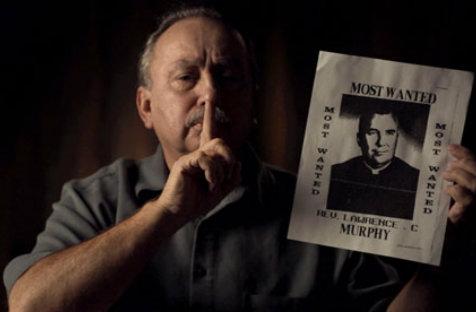Prolific documentarian Alex Gibney does not shy away from controversial material, having previously canvassed – to critical acclaim – corporate criminality (Enron: The Smartest Guys in the Room), government sex scandals (Client 9: The Rise and Fall of Eliot Spitzer), and military-sanctioned torture (Taxi to the Dark Side).
In Silence in the House of God: Mea Maxima Culpa, the filmmaker continues his comprehensive crusade against institutionalised injustice and the corruption of society’s foundations. This time, his target is the Catholic Church’s abuse of power and its betrayal of the faith of the masses; a topic which he examines first as a microcosm, within a single Wisconsin congregation, then as a worldwide epidemic cloaked in secrecy.
At Milwaukee’s St John’s School for the Deaf between 1950 and 1974, Father Lawrence Murphy was entrusted with the spiritual guidance of children already isolated from their families by virtue of their hearing impediment. His exploitation of that trust forever changed the boys in his care; the church’s handling of the victims’ complaints exposed an endemic attitude towards concealment, the aftershocks of which still echo in the highest offices of Catholic power decades later.
Based around interviews with four brave men at the centre of the Milwaukee scandal, their voices provided by well-known actors (Sinister’s Ethan Hawke, The Muppets’ Chris Cooper, Mad Men’s John Slattery and Homeland’s Jamey Sheridan) Silence in the House of God: Mea Maxima Culpa compels with its personal structure and chills with heartbreaking and intimate recollections of lost innocence. The broader investigation into the Vatican’s obscuring of the truth about this and many other cases may be less emotive in its presentation, but proves just as mobilising, removing any shadow of doubt about the establishment’s perpetuation of predatory behaviour.
Devastation is the outcome, even as re-enactments waver in effectiveness, for the film’s underlying argument cannot be ignored. A plethora of documents and archival material complement Lisa Rinzler’s (30 Beats) well-shot and Sloane Klevin’s (Freakonomics) meticulously-edited contemporary footage to further elicit discomfort, as they should; yet never does Silence in the House of God: Mea Maxima Culpa forget the affecting core of its powerful chronicle, essaying the extremes of human nature and their entrenched manipulations.
Rating: 4 stars out of 5
Silence in the House of God: Mea Maxima Culpa
Director: Alex Gibney
USA, 2012, 106 min
In cinemas March 21
Distributor: Madman
Rated M
Actors:
Director:
Format:
Country:
Release:





